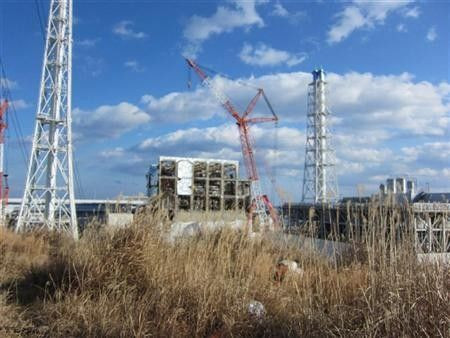No Big Fukushima Health Impact Seen: U.N. Body Chairman

(Reuters) - The health impact of last year's Fukushima nuclear disaster in Japan appears relatively small thanks partly to prompt evacuations, the chairman of a U.N. scientific body investigating the effects of radiation said on Tuesday.
The fact that some radioactive releases spread over the ocean instead of populated areas also contributed to limiting the consequences, said Wolfgang Weiss of the U.N. Scientific Committee on the effects of Atomic Radiation (UNSCEAR).
"As far as the doses we have seen from the screening of the population ... they are very low," Weiss told Reuters. This was partly "due to the rapid evacuation and this worked very well."
Weiss was speaking on the sidelines of a week-long meeting of 60 international experts in Vienna to assess for the United Nations the radiation exposures and health effects of the world's worst nuclear accident in 25 years.
The March 11 disaster caused by a 9.0 magnitude earthquake and tsunami wrecked the Fukushima plant on the coast north of Tokyo, triggering a radiation crisis and widespread contamination. About 80,000 residents fled a 20-km (12-mile) exclusion zone.
Weiss said Japanese experts attending the meeting had told him that they were not aware of any acute health effects, in contrast to the 1986 Chernobyl disaster in Ukraine.
"What we have seen in Chernobyl - people were dying from huge, high exposures, some of the workers were dying very soon - nothing along these lines has been reported so far (in Japan)," he said. "Up to now there were no acute immediate effects observed."
Several thousand children developed thyroid cancer due to radiation exposure after the Chernobyl disaster in the then Soviet Union, when a reactor exploded and caught fire and radiation was sent billowing across Europe.
Weiss said a few workers at Fukushima had received high radioactive doses, but "so far the initial medical follow-up of these workers who had high doses, as far as the Japanese colleagues told us, was OK."
A preliminary report on the radiation effects of Fukushima will be presented at UNSCEAR's annual meeting in May and a final document will be submitted to the United Nations General Assembly in 2013.
"We are putting together a jigsaw puzzle, evaluating the exposures of the general public, of workers, and radiation effects, and looking for the missing pieces," Weiss said.
The U.N. committee, which has published reports about Chernobyl, groups scientists from 27 countries.
Asked whether he was optimistic that the overall health effects would be quite small, Weiss said: "If we find out that what we know now is representing the situation, then the answer would be yes ... the health impact would be low."
© Copyright Thomson Reuters {{Year}}. All rights reserved.





















